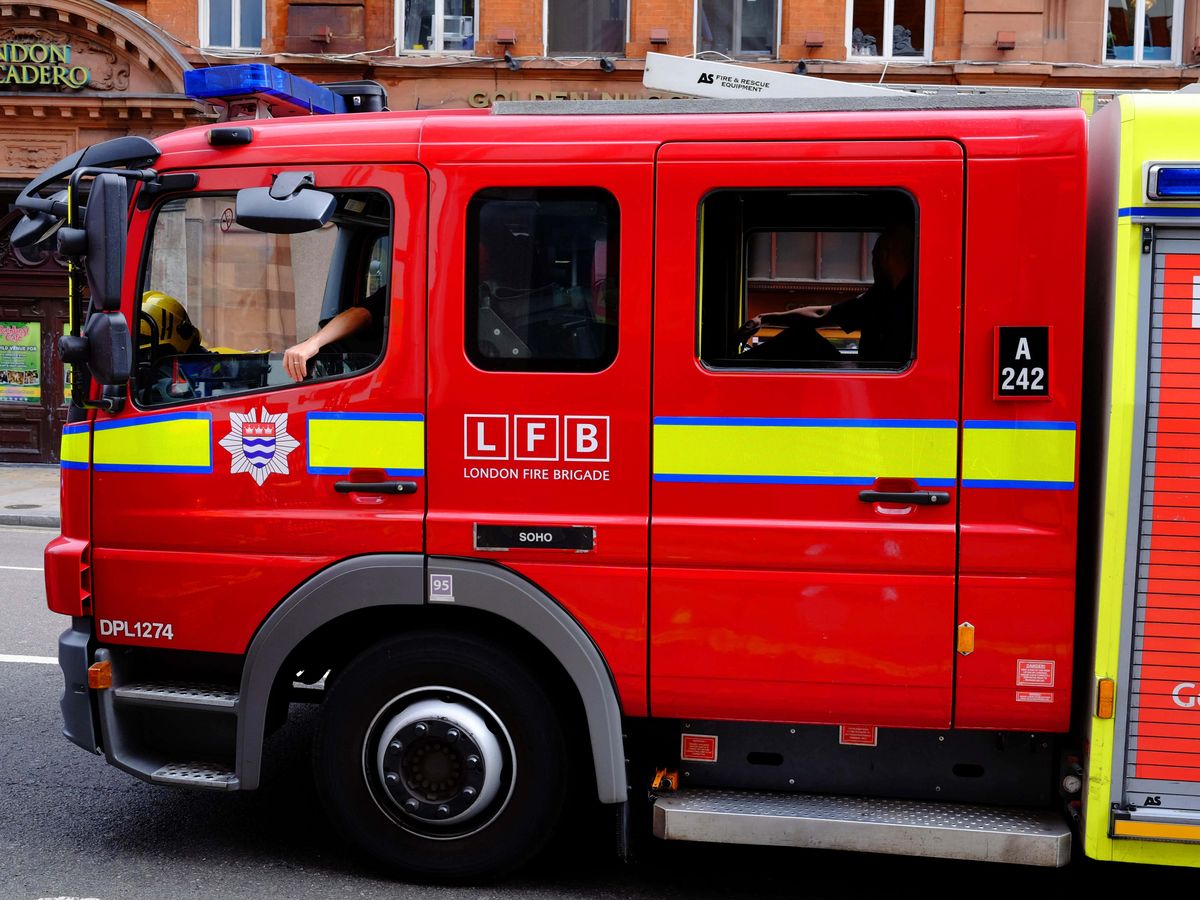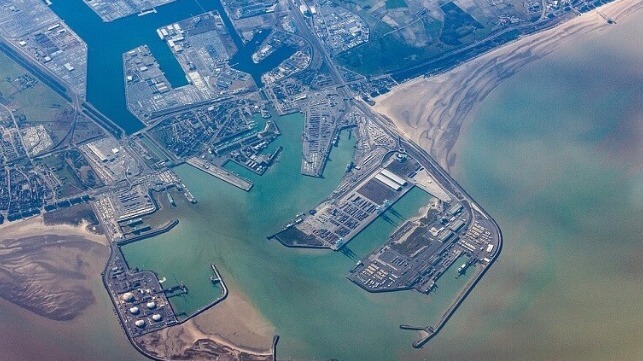Battery Fires
- Thread starter saneagle
- Start date
E-bike catches fire outside house in Hartland Road, Reading
"A Royal Berkshire Fire and Rescue Service crew from Wokingham Road Fire Station arrived to find the e-bike fire already extinguished."

 www.readingchronicle.co.uk
www.readingchronicle.co.uk
"A Royal Berkshire Fire and Rescue Service crew from Wokingham Road Fire Station arrived to find the e-bike fire already extinguished."

'These batteries are dangerous' - Warning after e-bike fire in Reading
Emergency services responded to an e-bike fire in Reading.
 www.readingchronicle.co.uk
www.readingchronicle.co.uk
11 people taken to hospital after ‘e-bike fire’ rips through tower block
"Witness accounts suggest the fire was sparked by lithium batteries from a second-hand electric bike, with one resident allegedly charging two bikes at the time of the fire."

 metro.co.uk
metro.co.uk
"Witness accounts suggest the fire was sparked by lithium batteries from a second-hand electric bike, with one resident allegedly charging two bikes at the time of the fire."

11 people taken to hospital after 'e-bike fire' rips through tower block
Emergency services were called to Bradbeer House on Cornwall Avenue, Bethnal Green after thick smoke was seen around the building.
e-bike warning after three rescued from Whitechapel flat
"The fire is believed to have been caused by a lithium-ion battery pack, most likely used for a converted e-bike, firefighters say."

 www.standard.co.uk
www.standard.co.uk
"The fire is believed to have been caused by a lithium-ion battery pack, most likely used for a converted e-bike, firefighters say."

Three people rescued from Whitechapel flat after fire sparked by e-bike
Nine people were assessed at the scene by London Ambulance Service crews and two people were taken to hospital to be treated for smoke inhalation
Cyclist's electric bike stolen on Newport coastal path

 www.southwalesargus.co.uk
www.southwalesargus.co.uk

Cyclist robbed by three men on Newport coast path in broad daylight
A cyclist had his electric bike stolen from him in a robbery on the Newport coastal path.
 www.southwalesargus.co.uk
www.southwalesargus.co.uk
Still rare though, with the vast majority of vehicle fires being liquid fuel.Is it only a matter of time before they get to Southend Airport?
Thing that worries me about EV's is the chance of them blowing up if in an accident
I hope not and Southend Airport is a lot less busy.

Where Can You Fly To? - London Southend Airport
Get ready to fly to your dream destination with our routes to a range of routes across Europe. #FlyLondonSouthend
E-bike blazes happening ‘every other day’ in London, fire chief warns
Many recent fires have involved second-hand e-bikes or e-scooters which have been modified using parts bought online, Richard Field said.

 www.shropshirestar.com
www.shropshirestar.com
Many recent fires have involved second-hand e-bikes or e-scooters which have been modified using parts bought online, Richard Field said.

E-bike blazes happening ‘every other day’ in London, fire chief warns
Many recent fires have involved second-hand e-bikes or e-scooters which have been modified using parts bought online, Richard Field said.
Will these 60 cars count in the EV tally? I'd expect you'd be a bit fed up if your car was on the same deck, or even if it was anywhere on the ferry. Do you get compensation for that, or is it an act of God?

 maritime-executive.com
maritime-executive.com

Major EV Fire Breaks Out Aboard Ro/Ro at Zeebrugge
On Wednesday, a fire broke out aboard a ro/ro cargo ship at the port of Zeebrugge, Belgium, prompting an immediate - and successful - emergency respo...
E-bike blazes have exposed a brutal truth: Londoners don't care about fires if the “wrong” people are victims
"London can’t afford to maintain its current indifference to these fires. As long as the systemic issues go unaddressed and these well-know and well-used apps go unchallenged on the appalling conditions their riders work in, more and more people will be pushed into taking lethal risks, and more lives will be lost to these entirely preventable disasters. It’s time to realise that this workforce abuse is no longer just an employment issue, it has become a public health issue, with a rapidly rising number of casualties. "

 www.standard.co.uk
www.standard.co.uk
"London can’t afford to maintain its current indifference to these fires. As long as the systemic issues go unaddressed and these well-know and well-used apps go unchallenged on the appalling conditions their riders work in, more and more people will be pushed into taking lethal risks, and more lives will be lost to these entirely preventable disasters. It’s time to realise that this workforce abuse is no longer just an employment issue, it has become a public health issue, with a rapidly rising number of casualties. "

Londoners don't care about e-bike fires because the “wrong” people are victims
Two years ago, on a grey day in March, I was standing outside a block of flats in Shadwell, listening to a fellow delivery rider speak with passion as he addressed the crowd present at the vigil. His flat had gone up in flames, taking with it the life of his close friend, another rider, named...
Like Electric bikes , EV's will be next to be banned from trains and then Roro's.
I think the only trains that cars can use is the chunnel tunnel, and while passenger roro's might get some sort of ban, commercial ones is unlikely due to the money involved.Like Electric bikes , EV's will be next to be banned from trains and then Roro's.
But they'll have to do something given EV's are the vehicle of the future. So they can't ban all or those ferry businesses will end up bankrupt.
Surely, the people, who need to travel, will buy ICE cars if they can't take an EV on a ferry or through the chunnel, which means the number of passengers stays the same?I think the only trains that cars can use is the chunnel tunnel, and while passenger roro's might get some sort of ban, commercial ones is unlikely due to the money involved.
But they'll have to do something given EV's are the vehicle of the future. So they can't ban all or those ferry businesses will end up bankrupt.
Only for those who maybe travel for work*. But the vast majority will take a car abroad for sightseeing or camping, and will possibly change their plans and go elsewhere.Surely, the people, who need to travel, will buy ICE cars if they can't take an EV on a ferry or through the chunnel, which means the number of passengers stays the same?
So the number of passengers would be less wouldnt it ?
* then we have firms only doing EV as a tax break, or a host of reasons, and in fact they might not be even able to buy a fleet of ice after a certain date
Etc etc and dare I say it etc
At least on the ship they were able to seal the compartment to flood with inert gas. Couldn't do that in the chunnel, people sit in their cars for the duration of the journey don't they?
How about a multi story car park?
Seems to me that this technology has not been fully through yet. A petrol fire can be put out but, from what we're hearing, battery fires seem to have to be contained and left to burn out.
Coming back to the ship, how the hell are they going to get into that comparment with the danger of reflash. How can they ever know that it's done? Who's going to be the first unfortunate to walk in there? Fancy the job?
How about a multi story car park?
Seems to me that this technology has not been fully through yet. A petrol fire can be put out but, from what we're hearing, battery fires seem to have to be contained and left to burn out.
Coming back to the ship, how the hell are they going to get into that comparment with the danger of reflash. How can they ever know that it's done? Who's going to be the first unfortunate to walk in there? Fancy the job?
the public does not keep up with progress in fireproofing EVs' batteries. Firstly, most of the battery fires that are left to burn out is of NMC or Lithium-ion type. LFP (Lithium Iron Phosphate) don't burn that way. EV batteries now have active temperature control. Thermal runaway can be prevented in most cases.Seems to me that this technology has not been fully through yet. A petrol fire can be put out but, from what we're hearing, battery fires seem to have to be contained and left to burn out.
NMC batteries are being phased out and replaced with LFP. More recently, lots of progress has been made to go even further than LFP, eliminating not just oxygen in the cathode but also liquid electrolyte that produces smoke in a fire. This new type of batteries will go into EVs this year. In a few years, all NMC batteries will be all replaced. The fire risk will then be virtually eliminated.
You have to follow what the Chinese EV companies are making and using. China is where most innovations in EVs are made.
Related Articles
-
 MTF Enterprises announces acquisition of EMU Electric Bikes
MTF Enterprises announces acquisition of EMU Electric Bikes- Started by: Pedelecs
-
 Wisper 806T folding bike wins Which? ‘Best Buy’
Wisper 806T folding bike wins Which? ‘Best Buy’- Started by: Pedelecs
-
 Sustrans calls for protected cycle lanes
Sustrans calls for protected cycle lanes- Started by: Pedelecs
-
 Amazon launch their first UK e-cargo micromobility hub
Amazon launch their first UK e-cargo micromobility hub- Started by: Pedelecs


